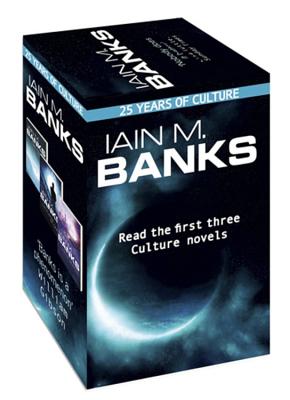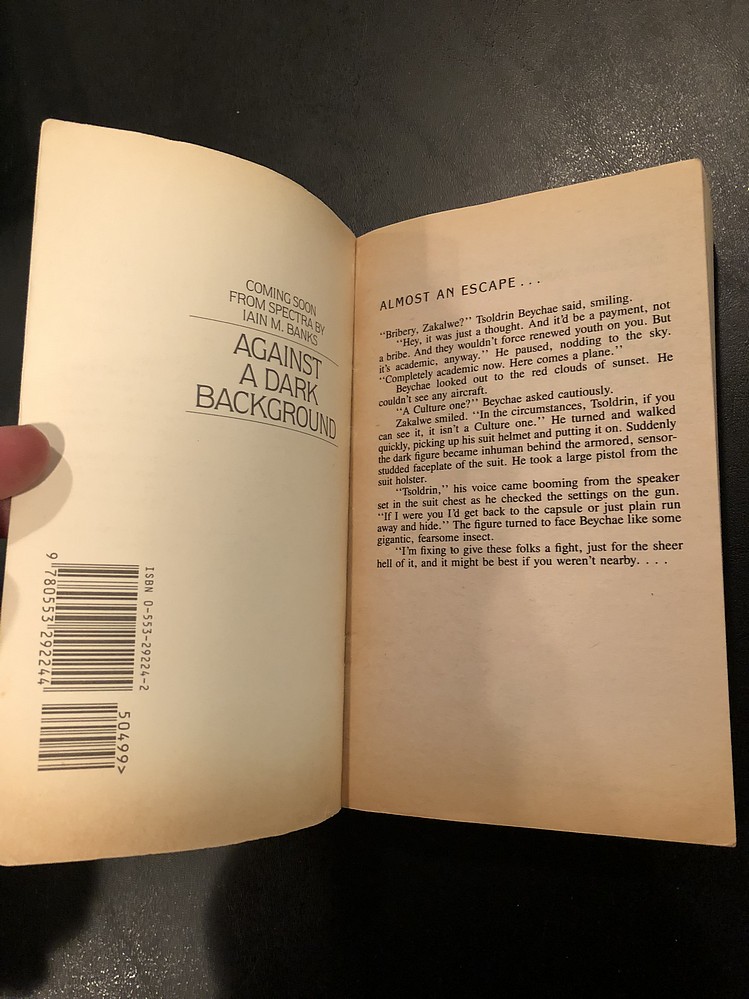
I don’t regret reading the entire book from front to back the first time through. What this part of the story does is set up a contrast between the way Zakalwe is proceeding now and the way he has operated in the past, as revealed in the flashback chapters with those descending Roman numerals. We’re left to accept that the Culture just likes to meddle and go with it. If the cluster goes to war … well, that won’t harm the Culture. The politics are a little byzantine, and there’s that constant sense, as with most Culture novels, that they don’t really matter. Now Sma has been sent to retrieve him, because he’s the only one who can help defuse war brewing in another star cluster. Then, after a mission goes awry, he decides to retire by going AWOL. He becomes a skilled member of Special Circumstances, the branch of the Culture’s Contact division that cleans up messes (or creates them). He is good at war-so good it scares people, including him. Not of the Culture directly, Zakalwe comes to work for them after finishing his own private little war. He still doesn’t quite capture my attention the way Gurgeh did, but I can admire what Banks does with Zakalwe’s psychology. In him, Banks has created such a naughty, knotty, complicated creature. Without spoiling the magnificent twist at the end, Zakalwe is not who we think he is, and probably not who he thinks he is either. She sets up the plot and comes along for the ride, but then we follow Zakalwe-and he’s something else entirely. We don’t spend that much time with Sma once the main plot of the novel kicks off. Neither of the main characters really do that for me in Use of Weapons. So having that one, exceptional person around as an anchor can really help. No one individual is really essential to the operation most people don’t really make a difference, because everything is run behind the scenes by the machines. I needed that, because the Culture’s defining characteristic is a kind of aggressive, generic facelessness: the Minds and even the citizens, to some extent, are interchangeable. See, I liked The Player of Games because it had a strong main character I could enjoy.

Iain M Banks demonstrates a versatility that would make a trained singer weep. For now, though, all I can say is that this is a thorough book. I need to read it again-and probably try reading the Roman numeral chapters backwards, since I didn’t realize they were chronologically reversed-to appreciate it more.


I understand where they’re coming from, but I just wasn’t able to focus enough on some of the details of this novel to grasp it.

I wish I could give Use of Weapons more stars and the appreciation some people are able to heap upon it.


 0 kommentar(er)
0 kommentar(er)
